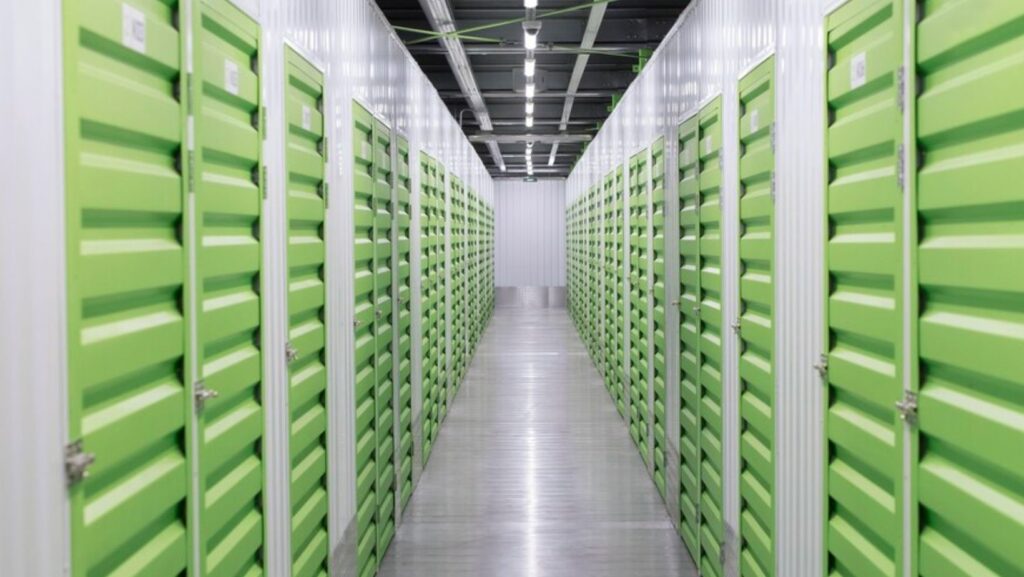Finding the right self-storage unit can be a game-changer for anyone needing extra space. Whether you’re decluttering your home, downsizing, or storing items during a move, choosing the right unit ensures your belongings are safe, secure, and accessible. But with so many options available, how do you pick the perfect one? This guide will walk you through the essential factors to consider when choosing a self-storage unit, helping you make an informed decision.
Determine Your Storage Needs
The first step in choosing a self-storage unit is assessing what you need to store. Are you looking to store household items like furniture and boxes, or do you need a place for larger items such as vehicles or equipment? Understanding the size and type of items will help you select a unit with the right capacity and features.
Storage units come in various sizes, typically ranging from small lockers to large garage-like spaces. To avoid paying for unused space, create an inventory of the items you plan to store and estimate the space they will require. If you’re unsure, many self-storage facilities offer size guides or consultations to help you choose the appropriate unit.
Accessibility and Location
Another crucial factor when choosing a self-storage unit is how often you’ll need to access your items. If you plan to visit the storage unit frequently, a facility that’s close to your home or workplace is ideal. Convenient access hours are also important, so check if the facility offers 24-hour access or restricted hours that fit your schedule.
Additionally, consider the layout of the storage facility. Some units offer drive-up access, which allows you to unload items directly from your vehicle to the unit, saving time and effort. Others might have indoor units accessible by elevator or stairs, which could be less convenient if you’re moving heavy or bulky items.
For those living in busy cities, proximity to your home can be a deciding factor. If you require self storage in Newark or other cities, consider how close the facility is to your home or business. You’ll want a facility that offers easy access from the main roads and ensures you’re not wasting time traveling across town just to reach your belongings. Additionally, a facility’s location in a safe and secure neighborhood adds an extra layer of peace of mind.
Consider Climate-Controlled Units
Not all items can handle temperature fluctuations or humidity, making climate-controlled units an essential option for many. If you’re storing delicate items such as electronics, artwork, antique furniture, or important documents, climate control can prevent damage from heat, cold, or moisture.

In areas with extreme weather, like hot summers or freezing winters, climate-controlled units offer a consistent environment, protecting your belongings from potential weather-related damage. Although these units tend to be more expensive than standard ones, the extra cost is often worth the peace of mind, especially for valuable or sensitive items.
Security Features Matter
When selecting a self-storage unit, security should be a top priority. Your belongings need to be protected not only from the elements but also from theft or vandalism. Look for storage facilities that offer robust security features such as:
- 24/7 video surveillance
- Gated access with personal entry codes
- On-site security personnel
- Well-lit premises and motion-detecting lights
- Individual unit alarms
These features provide added protection and reassurance that your items are safe at all times. Before committing to a storage facility, take a tour and inspect the security measures in place to ensure they meet your expectations.
Evaluate the Pricing and Contract Terms
Price is another important consideration when choosing a self-storage unit. Rates can vary depending on the size of the unit, location, and any additional features such as climate control or enhanced security. It’s essential to compare prices among different facilities and ensure you’re getting the best value for your needs.
Beyond the monthly rental rate, be sure to ask about any additional fees. Some storage facilities charge administrative fees, require insurance, or have mandatory deposits. Understanding the full cost upfront will help you avoid surprises down the road.
Also, pay attention to the contract terms. Some facilities offer month-to-month leases, which provide flexibility if you only need short-term storage. Others may have minimum rental periods or discounts for long-term commitments. Be sure to read the fine print and choose a contract that works for your situation.
Check for Additional Services and Amenities
Many modern storage facilities offer additional services and amenities to enhance your overall storage experience. Some facilities provide moving truck rentals or discounted moving services, making the process of transporting your items easier and more cost-effective. Others sell packing supplies on-site, allowing you to conveniently purchase boxes, tape, and other materials as needed. These extra features can save you time and effort, especially when you’re moving large quantities of items.

Other amenities to consider include temperature-controlled loading areas, pest control services, and cleanliness guarantees. Some facilities even offer online account management, so you can handle payments and access details remotely. While these additional services might come at a higher cost, they add convenience and can make the storage experience much smoother and worry-free.
Choosing the right self-storage unit involves more than just finding a space for your belongings. By considering factors such as your storage needs, the availability of climate control, security measures, location, pricing, and additional amenities, you can find a unit that fits your specific requirements. Whether you’re storing personal items, business inventory, or anything in between, the right self-storage facility will give you the peace of mind that your belongings are safe and easily accessible when you need them.


More Stories
Maximizing Space and Functionality: The Ultimate Guide to Garage Building
The Importance of Quality Siding in MA
The Impact of Automated Window Treatments on Modern Home Design